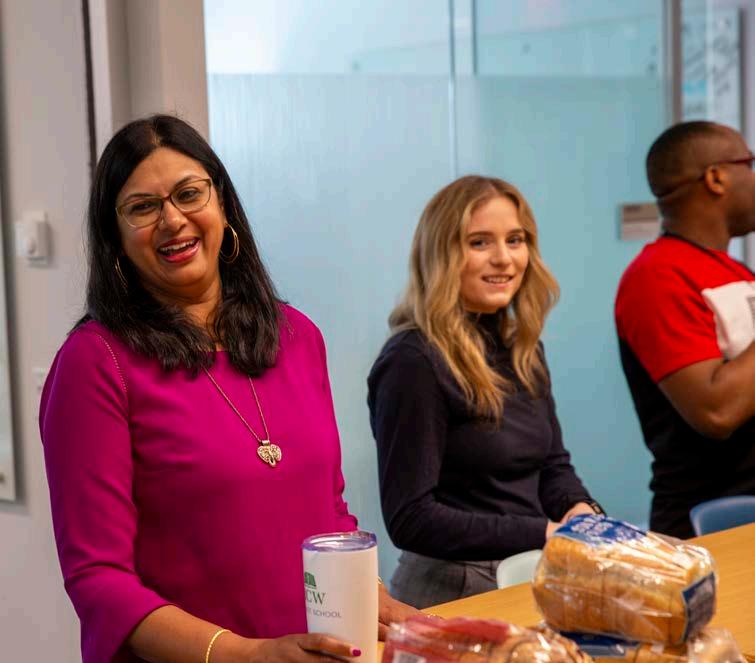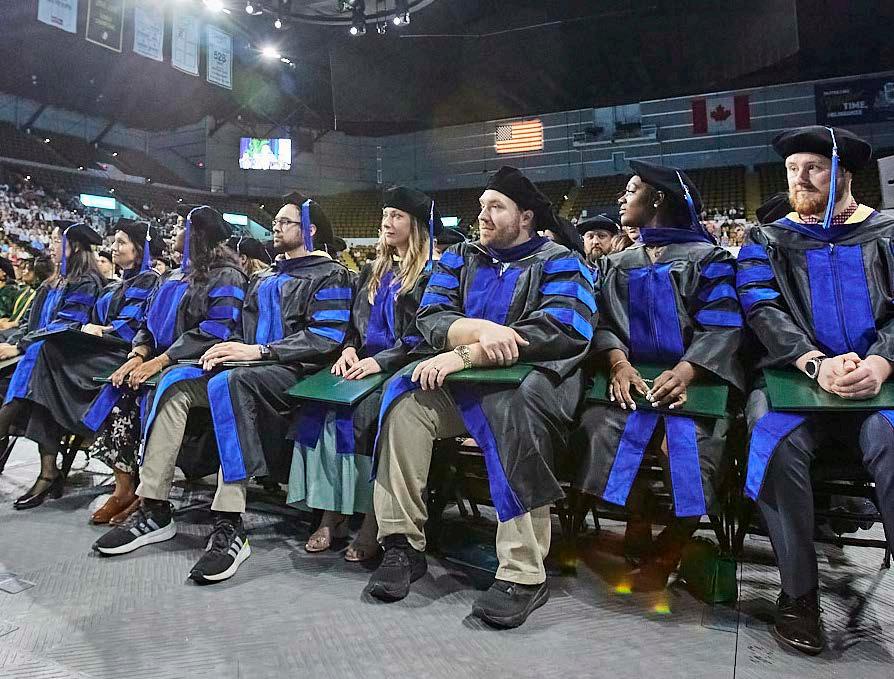School of Graduate Studies
Annual
Report 2024 - 2025
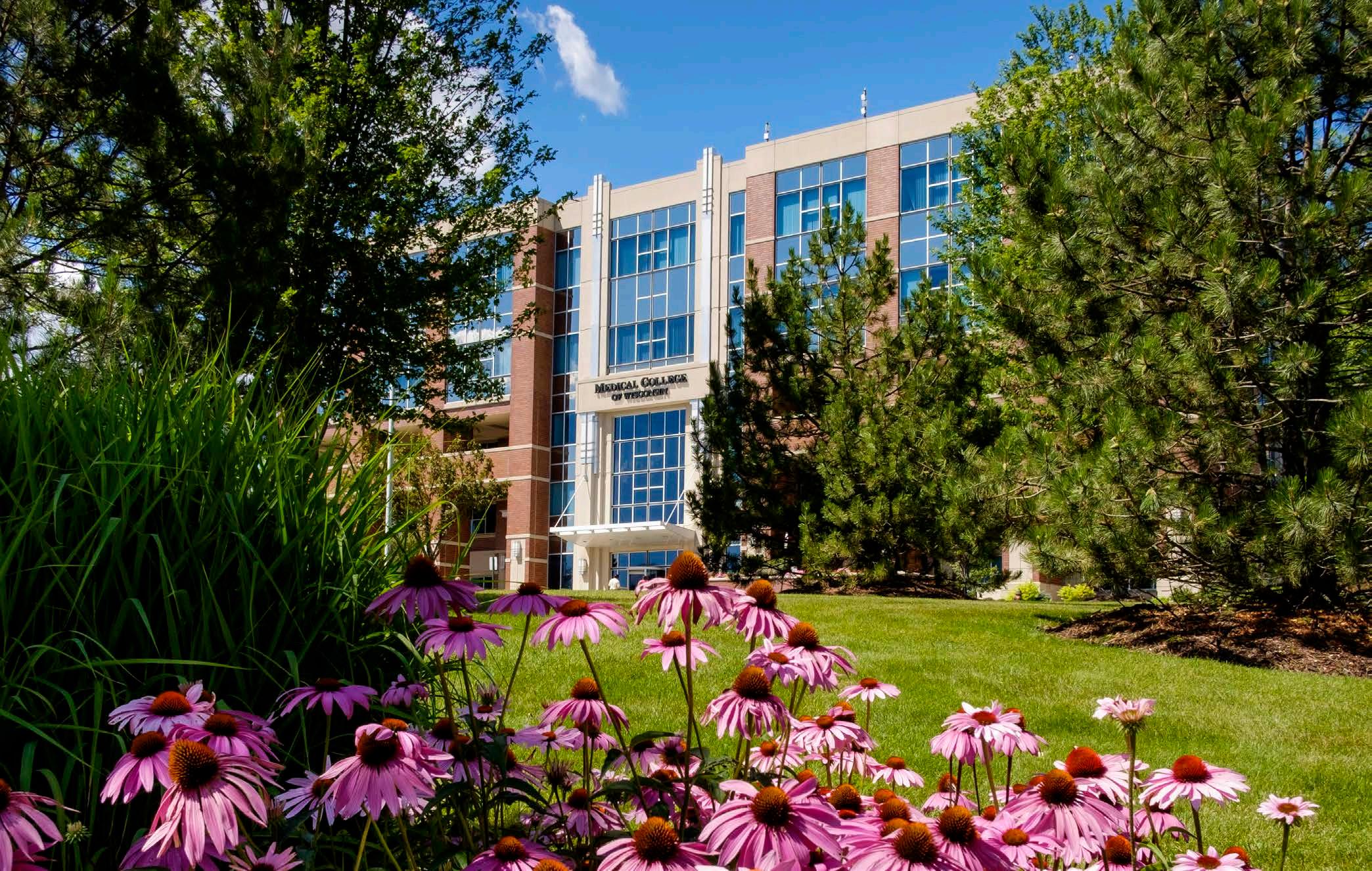

Report 2024 - 2025

It has been my honor to serve as Dean of MCW’s School of Graduate Studies since February 2024. Over the past year, I have had the pleasure of interacting with our learners across programs, collaborating with our Program Directors and working with an amazing staff within the Graduate School. It is evident to me that our learners, faculty and staff are committed to the success of our Graduate School.


My personal vision is to see our Graduate School be recognized as a destination hub for the health sciences and healthcarerelated fields. To meet this vision, we must create an inclusive and enriching environment that fosters the discovery of knowledge and prepares our learners to advance their fields of study. As steps towards this vision, we plan to engage in numerous initiatives that include the creation of a Mentoring Academy for all faculty of the Graduate School, improved support for international students, increased engagement with our alumni, a focus on philanthropy, and development of a 5-year strategic plan that will

outline a path forward for our Graduate School as we continue our expansion as a health sciences university.
Another major goal is to increase the visibility of MCW’s School of Graduate Studies and inform the broader community about the great accomplishments of our School, our faculty mentors, and most importantly, our learners. I hope this inaugural School of Graduate Studies Annual Report serves as a useful overview of the Graduate School. We highlight our staff who ensure the school meets high standards in our administrative processes. We provide important data regarding admissions and enrollment.
We share stories of our dedicated learners and accomplished alumni. We also celebrate our hard-working faculty who provide valuable mentorship to our learners as they pursue their graduate degrees.
The future of the School of Graduate Studies is very bright. Thank you for taking the time to learn more about us and for sharing in our journey.

DAISY SAHOO, P h D Dean of the School of Graduate Studies


GRADUATE SCHOOL LEADERSHIP

DAISY SAHOO, P h D
Dean of the School of Graduate Studies

NEIL HOGG, P h D
Senior Associate Dean of Academic Affairs

ADAM GREENBERG, P h D
Associate Dean of Postdoctoral Education
GRADUATE SCHOOL STAFF

ANGIE BACKUS, MS
Director of Enrollment Management
Assists with all studentcentered needs, oversees student enrollment and recruitment

DIANE VERHAAGH
Graduate School Administrator
Assists with student insurance and oversees the financial well-being of the Graduate School

HEATHER CLIFT, P h D
Research Grants Coordinator
Provides grant support and assists with the Graduate School Resarch Mentoring Academy
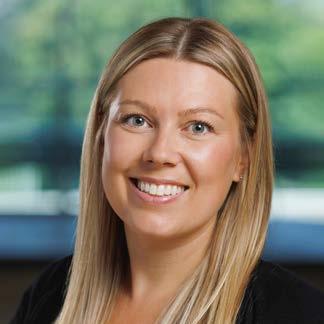
SARAH ASHWORTH
Manager, Enrollment and Student Services
Leads PhD degree completion, provides support for international students, and facilitates curriculum and program proposals and reviews

SKYLAR EISMAN
Education Program
Coordinator II
Assists the Graduate Student Association, and supports student affairs, orientation and enrollment

VICKI RYDELL Program Manager

KELLY ANGONE
Education Program Coordinator III
Manages Graduate Studies Council committees, provides faculty support, and facilitates career coaching
Manages undergraduate research sponsored by the Graduate School and facilitates recruitment and marketing

JULIE LIETZ
Education Program
Coordinator II
Works with Postdoctoral scholars and coordinates efforts for the Office of Postdoctoral Education

LINDSEY HILL, MA
Administrative
Assistant Sr.
Executive assistant to the Dean and provides administrative support to the Graduate School

ALLISON SCHNEIDER, MS
Education Program Coordinator III
Facilitates recruitment, outreach, and communication. Manages course registration and class scheduling
2024-2025 Fast Facts

STUDENTS ENROLLED IN FALL 2024
19.6%
1 of 120
ACADEMIC HEALTH CENTERS IN U.S. 1 of 2
JOINT BME DEPARTMENTS IN THE U.S. 489
INTERNATIONAL STUDENTS
92.8%
RETENTION RATE FROM 2023 42
GRADUATE PROGRAMS IN FALL 2024
Less than 1:1
STUDENT-TOFACULTY RATIO
$34,956
GRADUATE SCHOOL
ANNUAL P h D STIPEND (FY25)
MCW has conferred graduate degrees since 1936




5.3 Years
AVERAGE TIME TO DEGREE FOR P h D PROGRAMS
58 Students P h D MATRICULANTS
359 Students
14 Students
D r PH MATRICULANTS
Doctoral Program Information: Fall 2024 33.3% P h D INTERNATIONAL ENROLLMENT 5.3% D r PH INTERNATIONAL ENROLLMENT
DOCTORAL ENROLLMENT

MASTER’S MATRICULANTS 13 Students
CERTIFICATE, GUEST, AND NON-DEGREE MATRICULANTS
13%
MASTER’S INTERNATIONAL ENROLLMENT 26.7%
CERTIFICATE/GUEST/NON-DEGREE INTERNATIONAL ENROLLMENT
JOINT DEGREE MASTER’S PROGRAMS WITH MARQUETTE UNIVERSITY
Bioinformatics (MS)
Biomedical Engineering (MS & ME)
DEGREE PROGRAM WITH THE MEDICAL SCHOOL
MD/MS (Clinical & Translational Science)
MD/MPH (Public Health)
GRADUATE CERTIFICATES
Advanced Qualifications in Human Subjects Protection
Clinical Bioetics
Clinical & Translational Science
Community Health Assessment & Planning
Neuroethics
Population Health Management
Precision Medicine
Public Health
Research Ethics

PRESIDENT
JOEY KREIS
Department of Cell Biology, Neurobiology & Anatomy
Joey studies the structural and functional specializations of the human retina. This academic year Joey is serving as the GSA President and is in his third year of serving on the GSA Representative Council. As GSA President, his primary goals are to improve communications between the GSA and MCW graduate students and faculty, encourage students to become engaged beyond the lab, and establish robust organizational practices that will set the GSA up for success over the next several years.


VICE PRESIDENT
MARIA POIMENIDOU
Department of Microbiology & Immunology
Maria studies the role of metabolic programming in the tumor microenvironment. Maria’s primary goal has been to strengthen the Student Leadership Collective’s (SLC) presence on campus by fostering crossdisciplinary connections between the graduate, medical, and pharmacy schools through initiatives like the “Hoops for Hunger” social fundraiser. As GSA Vice President, she represents the student body on several committees, including the Graduate Studies Council, Commencement Committee, Research Affairs Committee, and the Graduate Outreach and Recruitment Program, working to amplify student voices and drive positive change within our academic community.

TREASURER
ROCKY MAZOROW
Joint Department of Biomedical Engineering
Rocky is researching assistive device development for upper limb rehabilitation after stroke. She joined the GSA in 2022 as the Biomedical Engineering Representative, and is now serving a second term as the GSA Treasurer where she works with the Graduate School to keep updated financial records and report to the Representative Council monthly.

SECRETARY
DAVID HUGHES
Joint Department of Biomedical Engineering
David studies fMRI and machine learning to characterize the specificity of responses in brain regions that coordinate attention. David is responsible for maintaining accurate records and documentation of all meetings, managing organizational files, ensuring compliance with bylaws, and updating policies.


PUBLIC RELATIONS
NATHAN WITMAN Department of Microbiology & Immunology
Nathan is currently evaluating B cell responses in COVID-19 and the consequent autoreactive antibody response that develops. Nathan posts updates on social events on campus in addition to posting accomplishments on social media and the GSA website!

MONTHLY TOAST TUESDAY
Every month the Graduate School hosts a “Toast Tuesday” where students get to chat with staff and enjoy tasty treats.
FEBRUARY
6th Annual
Hoops for Hunger
MARCH
Milwaukee Admirals Outing

AUGUST
Graduate School Olympics
Graduate School Appreciation week, held annually, is a celebration of the contributions, value, and impact of graduate students. It features various events, including a Three Minute Thesis Competition, donuts with deans, and networking lunches.
SEPTEMBER
OCTOBER
Halloween Party
NOVEMBER
Craft Night


MAY 2025
Hooding Ceremony & Commencement
DECEMBER
Holiday Party and Cookie Decorating
APRIL 2025
Annual GSA Symposium



International students make up nearly 20% of our student body, with a 50% increase in international student enrollment in the last 10 years. We currently have 145 doctoral international students.
China
Ghana
India Iran
Mexico
Nigeria
Bangladesh
Benin, Columbia, Germany, Egypt, Greece, Jamaica, Sri Lanka, Mongolia, Poland, Rwanda, Sudan, Singapore, Svalbard, Turks & Caicos, Zimbabwe (1 student each)
Brazil, Kenya, Korea, Philippines, Taiwan, Zambia (2 students each)
Jordan, Nepal, Pakistan, Uganda (3 students each)

MAX MANTYCH Masters Student in Global Health Equity
For my thesis and internship experience, I collaborated with Dhulikhel Hospital in Kavre, Nepal. As a student early in my global health career, it was an incredible opportunity to participate in the sustainable global health partnership fostered between Dhulikhel Hospital and MCW. For my thesis project, I worked with Dr. Samjhana Basnet (Emergency Medicine) and paramedics from the Dhulikhel Hospital Dispatch Center to conduct a retrospective analysis of the Dhulikhel Hospital Dispatch Center’s records. Together, we contextualized trauma patients who utilize prehospital services facilitated by trained paramedics and identified potential opportunities to enhance the time-sensitive prehospital care of trauma patients in Nepal.


Throughout my internship experience, I also had the opportunity to learn about various aspects of healthcare in Nepal, including field visits to the hospital’s rural community outreach centers. Additionally, a group of Kathmandu University School of Medical Sciences students and I completed a digital storytelling project that seeks to raise public awareness of how to use the threedigit ambulance number (102) to access emergency care and prehospital transport in Nepal.
I am grateful for my experiences at Dhulikhel Hospital, which have inspired me to continue exploring ways to stay engaged in global health partnerships as a medical student and future physician.

HEIDI STEINECKER Doctor of Public Health Student
My time at the Medical College of Wisconsin changed my life in ways I never could have imagined. As part of my Doctor of Public Health journey, I had the extraordinary opportunity to study infection control strategies in one of the most high-risk, bio-diverse, remote regions of the world; Uganda’s Impenetrable Forest, on the border of the Democratic Republic of Congo and Rwanda. It was there, at the local hospitals and outreach clinics in the forest, that I saw firsthand both the incredible resilience of rural health systems and the profound challenges they face in preventing infection and safeguarding both patients and healthcare workers. This incredible experience led me deep into the forest for vaccine clinics, HIV mitigation, and learning from the Batwa indigenous culture, and deeper still into the heart of why public health work matters.


My dissertation focused on implementing World Health Organization infection control protocols in rural Ugandan hospitals, drawing from immersive fieldwork and interviews with frontline staff who are doing heroic work with limited resources. I went to Uganda as a public health leader with experience managing public health crises like the pandemic in California, but I left with a renewed sense of purpose and humility. This experience didn’t just shape my academic work; it reshaped my worldview. I’m planning to return with my family to help further infection control initiatives and improve health infrastructure in the region. I believe that when we serve with intention and listen deeply, our actions can create ripples far beyond what we ever expect.

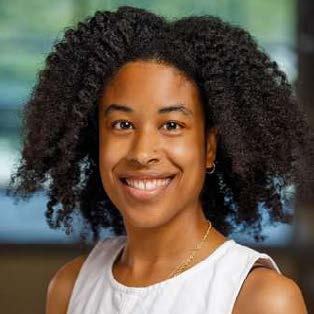
PhD Student in the Cell & Developmental Biology Program
At the beginning of my third year in graduate school, Dr. Falet mentioned the Chateaubriand STEM Fellowship, an award given to U.S. doctoral students to foster collaborative projects with laboratories in France for up to 5 months. Dr. Falet is familiar with the work of Dr. Anita Eckly in Strasbourg, France, who is an expert in studying megakaryocytes using advanced electron microscopy. I admire Dr. Eckly’s work, and I was very interested in learning these techniques from her to increase the robustness of my dissertation project on the role of PACSIN2 in megakaryocyte maturation. Strasbourg is a beautiful city that is rich in history and serves as the hub for the European Parliament of the European Union. I am grateful to have been awarded this fellowship and to have the opportunity to travel to Strasbourg and work with Dr. Eckly and her team. This trip will not only serve to enhance my personal and professional development (and practice speaking French) but also to solidify a strong working relationship with the Eckly lab as we plan to continue to collaborate on future projects.

KEVIN FOLIVI
Masters Student in Global Health Equity
Over the summer, I had the incredible opportunity to complete my global health internship in Nepal. Having the opportunity to live alongside, engage with, and work with MCW collaborators across the globe has far exceeded my expectations coming into this Global Health Equity. The experience was enriching, stimulating, and challenging in a great way, providing me with valuable insights into global health issues and community-based interventions. For my internship requirement, I was also tasked with making a digital story about the experience and I wanted to share it with you. Thank you very much MCW and MS Global Health Equity program for your support! Additionally, I had the pleasure of presenting an academic poster at the American Diabetes Association Annual Conference in Orlando Florida. The event was fantastic and I had the wonderful opportunity to engage with other professionals in the field. I appreciate all the guidance and support of my wonderful professors, who have been instrumental in these achievements. I eagerly look forward to the great work that is to come.

WINTER 2025: MEERA KRISHNA
PhD Student in the Cell & Developmental Biology Program
“Epidermal Collagen Reduction Drives Selective Aspects of Aging in Sensory Neurons” and Erika Johansen in the Microbiology & Immunology Program “Combination of proviral and antiviral roles of B cell-intrinsic STAT1 expression defines parameters of chronic gammaherpesvirus infection”
WINTER 2025: ERIKA JOHANSEN
PhD Student in the Microbiology & Immunology Program
“Combination of proviral and antiviral roles of B cell-intrinsic STAT1 expression defines parameters of chronic gammaherpesvirus infection”
SPRING 2025: RAYMUNDO NUÑEZ
PhD Student in the Biochemistry Program
“The TRIM33 Bromodomain Recognizes Histone Lysine Lactylation.”
1ST PLACE: KATY L a FOND
PhD Student in the Biochemistry Program
2ND PLACE: ALANNA SULLIVAN
PhD Student in the Cell & Developmental Biology Program
1ST PLACE: GAGE M. STUTTGEN, P h D
“Investigating the Novel Roles of FFAR4 in Foam Cell Formation and Atherosclerosis”
2ND PLACE: MOHAMED KHALIL, P h D
“Defining Memory NK cell development and functions following cytomegalovirus infection” and Ashley K. Brown, PhD
“Metabolism supports effector CD8 T cell differentiation in chronic inflammation”
JOSEPH LESUEUR
PhD Student in the Joint Department of Biomedical Engineering
CLAUDIA ROHR
PhD Student in the Cell & Developmental Biology Program
MELISSA L. NEAL, P h D
TAYLOR JARACZEWSKI, MD, MS

The Graduate Studies Council (GSC), the highest approval committee of the Graduate School, is the body responsible for the oversight of all graduate programs and activities. Its responsibilities include approval of admission standards, oversight of academic standing and professionalism, approval of curricular and programmatic changes, evaluation of all aspects of graduate education, including course, programs and faculty, and the nomination of election to Graduate School positions. Committee membership is decided via an electoral process.

ACADEMIC STANDING & WELFARE COMMITTEE
Chair: Sandra Pfister, PhD
Makes recommendations to the GSC on matters concerning student welfare and shall guide students on academic probation.
AWARDS COMMITTEE
Chair: Aprill Dawson, PhD
Reviews student applications for travel awards to scientific meetings, and other awards that recognize research accomplishments.
CURRICULUM AND PROGRAMS COMMITTEE
Chair: Ross Collery, PhD
Reviews all courses and programs, including certificate programs, proposed as new offerings of the Graduate School. The committee recommend to the GSC acceptance, modification, or rejection of the proposed courses and/or programs. Approval by the committee is the first step toward accreditation of new programs.
COURSE EVALUATION COMMITTEE
Chair: Julia Dickson-Gomez, PhD
Reviews course evaluations completed by the students at the end of each term.
PROGRAM EVALUATION COMMITTEE
Chair: Robert Lochhead, PhD
Reviews criteria and metrics and evaluates all programs of the Graduate School.
GRADUATE SCHOOL RANK COMMITTEE
Chair: David Nelson, PhD
Along with approving faculty credentials, this committee recommends appointments and promotions of Graduate School Faculty to the Graduate School Dean, and also accredits faculty for mentorship roles in Graduate School Programs.


In October of 2024, the inaugural Wisconsin Science Education and Research (WiSER) conference took place! The primary objectives of the WiSER Conference were to provide scientists at all levels—from undergraduates to faculty— with an opportunity to present their research, network, and experience a full scientific conference.
The event drew over 450 registrants, including approximately 200 undergraduates, 150 graduate students (MS and PhD), 50 research staff and postdoctoral scholars, and 100 faculty members. Attendees represented 23 Wisconsin institutions and 10 out-of-state institutions.
Over 2.5 days, programming included a keynote address, concurrent thematic sessions, two poster sessions, a networking lunch with experts, a banquet dinner, and a career fair. A total of 36 talks were presented, including contributions from 9 undergraduates, 11 graduate students, 3 postdoctoral researchers/research staff, and 13 faculty members. Abstracts were reviewed by MCW faculty and faculty from multiple University of Wisconsin and Primarily Undergraduate Institutions across the state, with senior graduate students and postdoctoral fellows from MCW also participating in the review process.
The conference featured 217 posters covering topics such as chemistry, biology, ecology, environmental science, public health, and data science. Undergraduate and graduate students had the unique opportunity to serve as session moderators, a role typically reserved for early-career scientists.
The WiSER Conference has helped to strengthen relationships with undergraduate institutions across Wisconsin, benefiting both students and faculty. It also serves as a powerful recruitment tool, directly engaging the population of students MCW seeks for its advanced degree programs. Additionally, the conference increases recognition of MCW's contributions to scientific research. The next WiSER conference will be hosted in November by the University of Wisconsin – La Crosse.
The WiSER Consortium is engaged in multiple initiatives aimed at retaining students in STEM, supporting career advancement at all levels, and fostering collaboration among Wisconsin scientists.
Notably, throughout all of these objectives, there is a Wisconsincentric perspective – let's retain our fantastic scientists and health care professionals, here in Wisconsin.
MICHAELA PATTERSON, P h D

If you are interested in getting involved, reach out to Michaela Patterson or visit our website.
FACULTY
BIOCHEMISTRY
Stephanie Olivier-Van Stichelen, PhD
Elizabeth Sweeny, PhD
Dawn Wenzel, PhD
BIOMEDICAL ENGINEERING
Brian Schmit, PhD
Said Audi, PhD
Amit Joshi, PhD
Ranjan Dash, PhD
Jessica Fritz, PhD
Bo Wang, PhD
Jordan Williams, PhD
Bing Yu, PhD
BIOPHYSICS
Kathleen Schmainda, PhD
Candice Klug, PhD
Ruta Brazauskas, PhD
CELL BIOLOGY, NEUROBIOLOGY & ANATOMY
Ryan Hillmer, PhD
Pui Lam, PhD
Matthew Veldman, PhD
Lisa Cirillo, PhD
Brian Link, PhD
Kenchiro Taniguchi, PhD
Allison Ebert, PhD
Herve Falet, PhD
Olena Isaeva, PhD
Michaela Patterson, PhD
DATA SCIENCE INSTITUTE
Rodney Sparapani, PhD
Chien-Wei Lin, PhD
Tao Wang, PhD
Ruta Brazauskas, PhD
INSTITUTE FOR HEALTH & HUMANITY
Alexandre Martins, PhD
John Meurer, MD, MBA
Kwang Woo Ahn, PhD
Jennifer Peterson, PhD
Laura Cassidy, PhD, MS
Brian Jackson, EdD, MS
Laila Azam, PhD, MBA
Christopher Simenz, PhD, MS
Nate Conley, MS
Alyson Krokosky, MS
Alison La Pean Kirschner, MS
Jordyn Prell, MS
Julia Dickson-Gomez, PhD, MA
Annie Friedrich, PhD
Kaija Zusevics, PhD, MPH
Jennifer Geurts, MS, CSG
Aniko Szabo, PhD
Jessica Olson, PhD, MPH
MEDICINE
Juliana Alvarez Argote, MD
John Charlson, MD
Aprill Dawson, PhD, MPH
Deepak Kilari, MD, MS
Joni Williams, MD,MPH
Rachel Cusatis, PhD
MICROBIOLOGY
Joseph Barbieri, PhD
Christopher Kristich, PhD
Michelle Riehle, PhD
Scott Terhune, PhD
Dara Frank, PhD
Amy Hudson, PhD
Jessica Kelliher, PhD
Robert Lochhead, PhD
Eillen Tecle, PhD
NEUROSURGERY
Matthew Budde, PhD
Timothy Meier, PhD
Antji Kroner-Milsch,MD, PhD
OPHTHALMOLOGY
Joel Miesfeld, PhD
Ross Collery, PhD
PEDIATRICS
Donald Basel, MD
Andrew Spearman, MD
Michael Muriello, MD
PHARMACOLOGY
Wai-Meng Kwok, PhD
Constanza Garcia-Keller, PhD
Carol Williams, PhD
Qing-song Liu, PhD
Kristin Ciezki, PhD
Gwen Lomberk, PhD
John Mantsch, PhD
PHYSIOLOGY
Gary Mouradian, PhD
Caitlin O’Meara, PhD
Justin Grobe, PhD
Julie Freed, MD, PhD
Pablo Nakagawa, PhD
Jennifer Tuscher, PhD
Jennifer Freiheit, PhD
PSYCHIATRY & BEHAVIORAL MEDICINE
Steven John, PhD
Sara Kohlbeck, PhD, MPH
RADIOLOGY
Andrew P. Klein, MD
Dustin Ragan, PhD
SCHOOL OF PHARMACY
Carolyn Oxencis, PharmD
SURGERY
Alexandra C. Istl, MD, MPH
Tammy Lyn Kindel, MD, PhD
Anai N. Kothari, MD
Paul L Linsky, MD
Mochamad Nataliansyah, MD, PhD





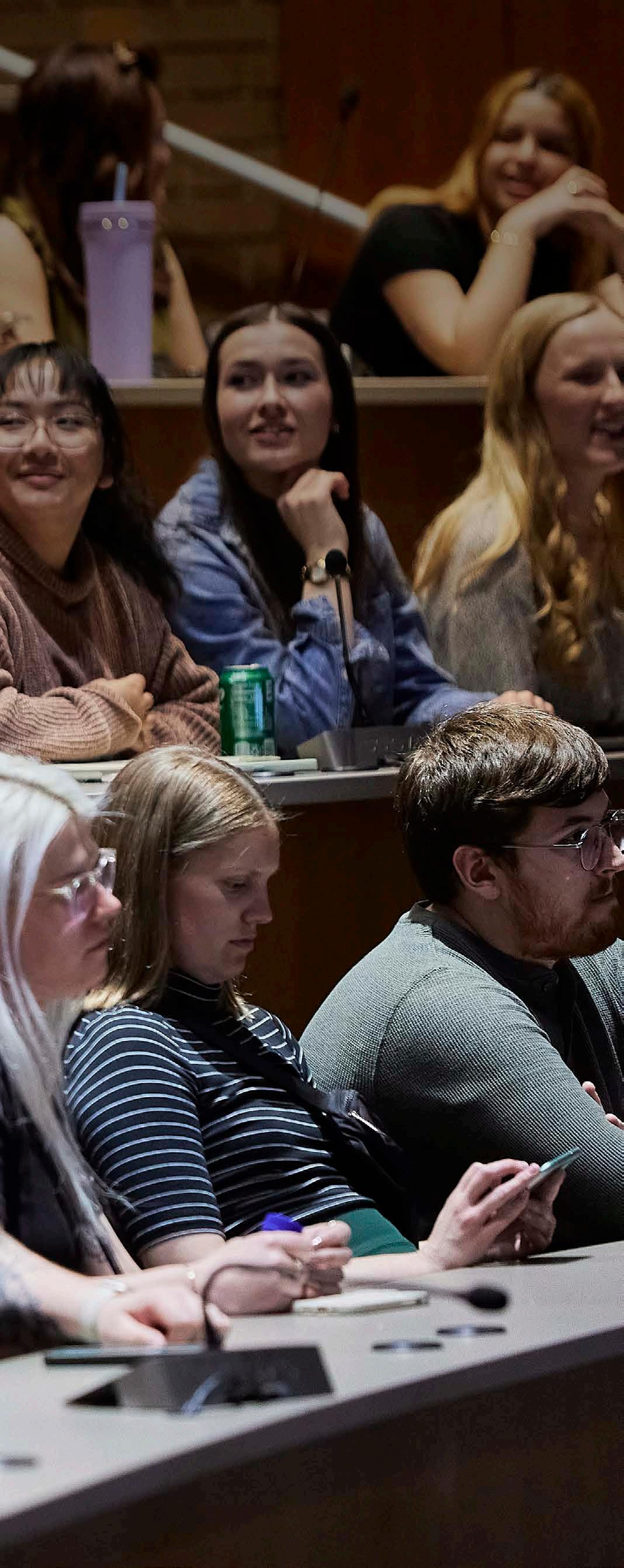
American Society for Biochemistry and Molecular Biology Annual Meeting
Annual Biomedical Research Conference for Minoritized Scientists
Benedictine University 34th
Annual Health Professions Fair
Biomedical Programs Virtual Fair
Career Eco Health Professions Virtual Fair
Career Eco Biomedical and Health Professions Virtual Fair
Georgia Tech Virtual Fair
Marquette University Biomedical Sciences Graduate Programs Exploration
MCW Spring Open House
Medical Physiology Virtual Open House
National Conference on Undergraduate Research
NIH Graduate & Professional School Fair
Public Health Programs Virtual Fair
Society for Neuroscience
Graduate School Fair
The NAAHP National Conference
UMBC McNair Scholars Conference
United States Hispanic Leadership Institute (USHLI) National Conference
Wisconsin Science Education and Research Consortium (WiSER)


REIAUNA TAYLOR
Graduate Student, Physiology PhD Program
As a graduate student, I was honored to contribute by connecting with the next generation of scientists, many of whom shared similar backgrounds to mine.
Attending ABRCMS 2024 was an inspiring experience that allowed for a vibrant celebration of diversity and innovation within the biomedical sciences!
As a recruiter, I engaged directly with undergraduates to foster meaningful connections. These moments allowed me to share my journey as a graduate student and highlight the transformative role MCW has played in shaping my path as a researcher. At times, I could feel the privilege of playing a direct role in guiding students toward opportunities aligned with their passions — all of which are opportunities I encouraged them to explore here at MCW, a leader in cutting-edge research.
The Summer Program for Undergraduate Research (SPUR) at MCW is one of the longest-running programs of its kind. Started in 1983, SPUR has provided significant health research experience to over 1,000 participants. In addition to bringing more institutional awareness to MCW through recordsetting application numbers, the program serves as an effective method of attracting students to our various degree programs.
The Graduate School currently enrolls nearly 40 students who are former SPUR participants. SPUR students, typically junior or senior-level undergraduates, receive a stipend and engage in research projects over a period of 10 weeks during the summer months. The program also provides social/networking and enrichment opportunities for participants throughout the summer. We are grateful that over 30 faculty mentors hosted SPUR students in their labs this past year
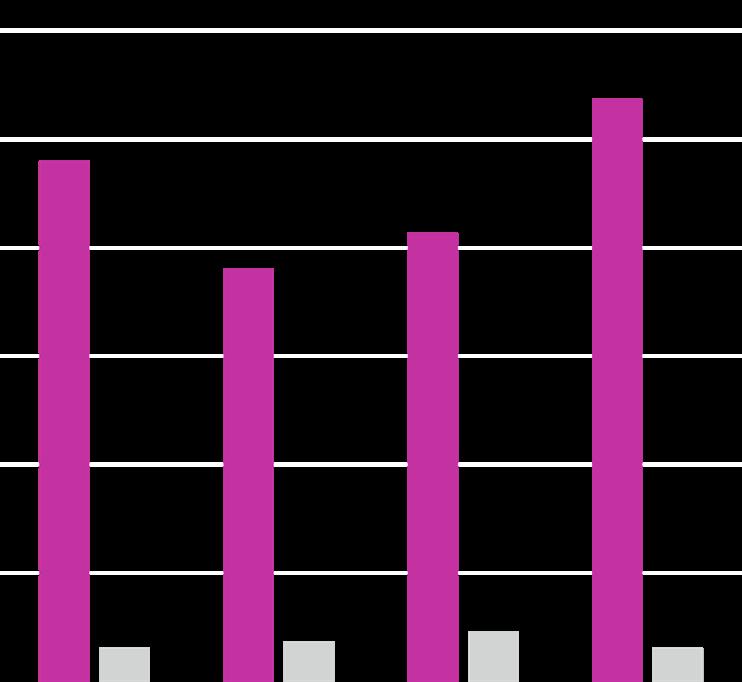
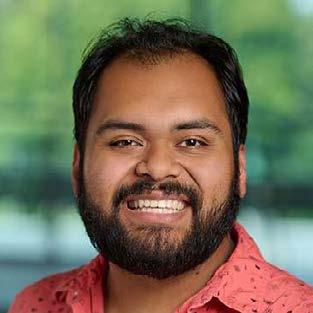
CARLOS HERRADA Graduate Student, Department of Biophysics
Carlos’ journey to his current standing as a 1styear graduate student in the Interdisciplinary Program of Biomedical Sciences (IDP) began in the summer of 2023, when he first came to MCW as a SPUR participant in Dr. John Corbett’s lab. “I decided to accept because I was interested in learning more about research in general and learning more about clinically relevant research”, said Carlos about his decision to ultimately participate in SPUR after hearing about the program through a friend at his undergraduate institution.
Initially, Carlos wanted to pursue a Doctor of Medicine degree, but he found that it wasn't the right path for him. “I had a passion for science, and I wanted to use that passion to do something that would ultimately help better people's lives, which is why I chose research”.
I felt that the research done at MCW was the most direct way to help people using the skills that I have.
When asked about his favorite memory of SPUR, Carlos said “my favorite memory involved the service trip we all took to the Hunger Task Force. It was great to get to know everyone in the cohort outside of the lab and other 'formal' events that were put on throughout the summer. It was also fun to do some community service.” Every year, SPUR continues to participate in a service outing with other summer programs from MCW that typically consists of a field trip over to the Hunger Task Force Stockbox warehouse, where our participants spend several hours stocking healthy foods in boxes for low-income seniors.
At the conclusion of SPUR 2023, Carlos made the decision to apply for graduate school saying, “I found that I enjoyed the process of discovering something new and felt a sense of belonging among scientists.” Coming in, he was initially worried that he wouldn't be welcome or that he wouldn't fit into the world of science adding “as a firstgeneration student, I wasn't sure what to expect.”
Carlos was eventually admitted into MCW’s Interdisciplinary Program in Biomedical Sciences (IDP). One of his factors in the pursuit of graduate education at MCW was that he felt the most welcome at MCW. “The faculty mentors seem to take a genuine interest in the students and take the time to get to know the person and not just the scientist”, said Carlos. “This welcoming environment along with the push for collaboration between labs was very attractive to me and ultimately pushed me to come here.” It didn’t hurt that his wife lives in the Milwaukee area, and it was great to be able to stay close to her.
Carlos has joined Dr. Vanessa Leone’s lab in the Biophysics Department.
The Program for Undergraduate Research (PURE) offered by MCW’s School of Graduate Studies is a non-paid, experiential-based program for undergraduate students who are currently enrolled in a degree-seeking program at an accredited college/university.
PURE participants are placed with a MCW faculty mentor who will provide varying levels of exposure to basic, translational and population research. PURE is only offered during the academic year (mid-August to mid-May). Students are expected to devote a minimum of 8 hours (maximum of 20 hours) each week to their faculty mentor and research lab over the course of the program. We are grateful to 13 faculty mentors who hosted PURE students this past year.


POSTDOCTORAL
EDUCATION
MARCH
March Madness competition & Holi Fest

MONTHLY MEET AND GREET with the Associate Dean of Postdoctoral Education
Day at the zoo for postdocs and their family
OCTOBER
Halloween gathering

SEPTEMBER 4th Annual Postdoc Research Symposium and Postdoc Appreciation Week

NOVEMBER
Wisconsin Postdoc Expo and Postdoc Thanksgiving
This committee consists of 15-20 postdoctoral scholars who assist the Office of Postdoctoral Education in identifying the needs of postdoctoral scholars through initiatives to create a more cohesive community of postdoctoral scholars at MCW and Versiti/Blood Center of Wisconsin.
The PAC Co-Presidents seek, inspire, and lead new initiatives to improve the postdoc experience at MCW and Versiti.
AWARDS COMMITTEE
Responsible for setting deadlines for applications, requesting applications, and subsequent judging of applications.
Co-President: Michelle Roberts, PhD, Medicine
Co-President: Emily Welby, PhD, Cell Biology, Neurobiology, & Anatomy
Secretary: Sonam Mittal, PhD Obstetrics and Gynecology
Chair: Stephen Hammond, PhD, Medicine
Member: Aravind Parthasarathy, PhD, Medicine
SOCIAL COMMITTEE
Responsible for organizing one event per month for the MCW/Versiti postdoctoral scholars community.
POSTDOC MENTORING COMMITTEE
Responsible for contacting newly hired postdocs and matching them with a mentor who can meet and provide information.
Co-Chair: Joshua Nord, PhD, Biochemistry
Co-Chair: Emily Welby, PhD, Cell Biology, Neurobiology, & Anatomy
Member: Sonam Mittal, PhD, Obstetrics and Gynecology
WEBSITE DESIGN COMMITTEE
Responsible for maintaining the look, layout, and features of the PAC website.
Co-Chair: Gaurav Kumar, PhD, Physiology
Co-Chair: Erica Marion, PhD, Obstetrics and Gynecology
Co-Chair: Steve Hammond, PhD, Medicine
Co-Chair: Emily Welby, PhD, Cell Biology, Neurobiology, & Anatomy
NATIONAL POSTDOCTORAL ASSOCIATION (NPA) COMMITTEE
Works to make available to MCW/ Versiti postdocs any opportunities provided by the NPA.
Chair: Michelle Roberts, PhD, Medicine
Member: Silambarasan Anbumani, PhD, Radiation Oncology
In Fall 2024, the Office of Postdoctoral Education launched the inaugural cohort of the CDP Advancement Pathway (CAP), a career exploration workshop designed for postdoctoral fellows. Nine participants took part in eight peerfacilitated sessions covering essential topics such as skill identification, networking, and career research. New cohorts will start in February 2025.

Basic Science Postdocs
NATALY CRUZ-RODRIGUEZ, P h D
Department: Versiti
Supervisor: Michael Deininger
“BCR::ABL1 Proteolysis-targeting chimeras (PROTACs): The new frontier in the treatment of Ph+ leukemias?”
Authors: Cruz-Rodriguez N, Tang H, Bateman B, Tang W, Deininger M
Journal: Leukemia (PMID: 39098922)
TARUN PANT, P h D
Department: Surgery - Pediatric
Faculty Supervisor: Martin Hessner
SAURABH KUMAR, P h D
Department: Versiti
Faculty Supervisor: Qizhen Shi
“Platelet-targeted gene therapy induces immune tolerance in hemophilia and beyond”
Authors: Kumar S, Schroeder JA, Shi Q
Journal: Journal of Thrombosis and Haemostasis (PMCID: PMC11249137)
“Monocytes in type 1 diabetes families exhibit high cytolytic activity and subset abundances that correlate with clinical progression”
Authors: Pant T, Lin CW, Bedrat A, Jia S, Roethle MF, Truchan NA, Ciecko AE, Chen YG, Hessner MJ
Journal: Science Advances (PMCID: PMC11100571)
PROFESSIONAL DEVELOPMENT
Awarded semi-annually to support scientific training for up to 15 postdocs each year
Daria Golosova, MD, PhD
Gaurav Kumar, PhD
Jean Bikomeye, PhD, MPH
Silambarasan Anbumani, PhD
Rupesh Chikara, PhD
EXCELLENCE IN SCIENCE
Awarded annually to the top postdoctoral fellow of the year
Nikola Sekulovski, PhD
JORDAN BOBEK
Biochemistry
EMILY BOYD
Cell & Developmental Biology
ASHLEY BROWN
Microbiology & Immunology
KARINA BURSCH
Biochemistry
OMAR CORTEZ-TOLEDO
Pharmacology & Toxicology
VLADISLAV FRIEDMAN
Pharmacology & Toxicology
MINA GAFFNEY
Biomedical Engineering
CRISTHIAN GUITERREZ HUERTA
Physiology
ERIKA JOHANSEN
Microbiology & Immunology

MAKENNA KNAS
Cell & Developmental Biology
JOSEPH KREIS
Cell & Developmental Biology
LAUREN LASKOWSKI
Pharmacology & Toxicology
CHRISTOPHER MONTI
Microbiology & Immunology
ANDREW O’NEIL
Public & Community Health
MARIA POIMENIDOU
Microbiology & Immunology
ANUSHA RENGARAJAN
Cell & Developmental Biology
SARAH RINE
Public & Community Health
CLAUDIA ROHR
Cell & Developmental Biology
VIREN SHAH
Biomedical Engineering
PAUL SIDLOWSKI
Biochemistry
KELLI SOMMERS
Microbiology & Immunology
RUTH WOEHLKE
Biomedical Engineering
TAYLOR WILCOX
Pharmacology & Toxicology
LAUREN YUNKER
Physiology
LU ZHOU
Microbiology & Immunology
SAMUEL ZORN
Cell & Developmental Biology
CASEY ZOSS
Biophysics
TIMOTHY BOERGER, P h D
Neurosurgery
MICHELLE CASTILLO, P h D
Pathology
JONATHAN ENDERS, P h D
Cell Biology, Neurobiology, & Anatomy
SUBHAJIT GIRI, P h D Pathology
OLIVIA KOEHN, P h D Pharmacology & Toxicology
GAURAV KUMAR, P h D Physiology
SONAM MITTAL, P h D
Obstetrics & Gynecology
ANUPAMA NAIR, P h D
Obstetrics & Gynecology
JOSHUA NORD, P h D
Biochemistry

SANA PARVEEN, P h D Medicine
NIKOLA SEKULOVSKI, P h D Cell Biology, Neurobiology, & Anatomy
JAGADEESH UPPALA, P h D Biochemistry
SWAPNIL WAGHMARE, P h D Cell Biology, Neurobiology, & Anatomy
XINRUI WANG, P h D Pharmacology & Toxicology
EMILY WELBY, P h D
Cell Biology, Neurobiology, & Anatomy

Dr. Dominique Carter graduated with her PhD in Microbiology and Immunology in 2016 under the mentorship of Dr. Scott Terhune. She is currently Principal Consultant at Lewis-Burke Associates, LLC, “working at the intersections of science and technology policy and strategy to ensure a sustainable, equitable and just food system for all.”

MCW is highly collaborative and there is lots of amazing research happening across all of the science/ clinical departments – you never know where your research may take you.
Since earning her doctoral degree, Dr. Carter has forged an impressive career path, working as an Agricultural Science Advisor at the USDA, then becoming Assistant Director of Agricultural Sciences, Innovation, and Workforce at the White House Office of Science and Technology Policy, followed by a role as Vice President of Food & Nutrition Affairs at FoodMinds before filling her current role.
She has also been awarded many prestigious fellowships including Global Innovation Fellow for the inaugural US-China Youth Forum on Entrepreneurship, Innovation and Economic Opportunities at the US Department of State in DC, AAAS Science & Technology Policy Fellow at the National Science Foundation, Millennium Leadership Fellow 2021-2022 with the Atlantic Council, one of the most competitive programs in the world for future leaders between the ages of 25 and 35 in international affairs, and Food Leader Fellow at The Aspen Institute.
Additionally, Dr. Carter has recently been awarded the Black Women in Food Trailblazer Award (2024) and the SIA-Africa Person of the Month Award (Jan 2021).

Dr. Matthew Hodges is a Tenured Professor in the Department of Physiology at the Medical College of Wisconsin. He graduated with a PhD in Physiology in 2004 under the mentorship of Dr. Hubert Forster, earning the Julius M. Babush Physiology Fellowship Award and an Excellence in Physiology Award. After graduate school, Dr. Hodges accepted the Parker B. Francis Postdoctoral Fellowship in the Department of Neurology at Yale School of Medicine. After five years of further training, he returned to MCW, taking a faculty position as an Assistant Professor of Physiology.

Dr. Hodges now runs a successful research lab at MCW studying how our brains unconsciously control breathing, and what goes wrong with this neural circuit in human disease, especially in the case of repeated seizures, which may disturb cardiorespiratory neural networks controlling breathing and heart rate, leading to Sudden Unexpected Death in Epilepsy (SUDEP). His lab also has an interest in testing new drug compounds that may reverse the strong and sometimes lethal actions of synthetic opioids like fentanyl to combat the ever-growing opioid crisis.
Dr. Hodges has a keen interest in teaching and mentoring the next generation of scientists, as he is the Director of Graduate Studies in the Department of Physiology and the Program Director for the Integrated Physiology Training Program: “Molecule to Organism” that helps to fund the training of six graduate students a year in cardiovascular and respiratory diseases. He is a much-loved Professor at MCW, having won teaching awards such as the Harry Beckwith Basic Science Teaching Award (2023), Dean’s Choice for Outstanding Graduate School Educator (2021), and numerous Outstanding Graduate School Educator/Teacher and Medical Student Teacher awards throughout his time at MCW.

JOE
ROUSE, P h D Microbiology and Immunology
Dr. Joe Rouse is a Postdoctoral Fellow at the Centers for Disease Control and Prevention (CDC) where he is researching the development and improvement of the influenza vaccine. Before earning a Bachelors and Master’s in Science at the University of Wisconsin-Parkside and applying to graduate school at MCW, Dr. Rouse was a combat medic in the US Army for four years. He graduated from MCW with a PhD in Microbiology & Immunology in 2024 under Dr. Robert Lochhead’s mentorship, studying Lyme Disease. During his time at MCW, Dr. Rouse led the LGBTQ Connections group, serving as a student liaison for the MCW-sponsored LGBTQ group and its LGBT employee resource group, in addition to leading a support group for queer men in Milwaukee. He was also involved in mentorship programs, including the Student Enrichment Program for Underrepresented Professions (StEP-UP), which focuses on students from underrepresented backgrounds.

ALEXANDRA CHADWICK, P h D
Biochemistry
Dr. Alexandra Chadwick is the Director of Editing and Discovery at Verve Therapeutics in Boston, MA. She received her PhD in Biochemistry in 2016 under the mentorship of Dr. Daisy Sahoo, where she focused on characterizing the interaction between high-density lipoprotein and its receptor, SR-BI. Dr. Chadwick then completed a Postdoctoral Fellowship with Dr. Kiran Musunuru at the University of Pennsylvania, where she focused on using gene editing in the prevention of cardiovascular disease.
In 2018, she was recruited to Verve Therapeutics, a biotech company dedicated to developing singlecourse gene editing treatments for cardiovascular disease. Dr. Chadwick played a pivotal role in establishing both the initial laboratory and team. Since then, Verve has grown to over 250 employees and is currently conducting Phase I clinical trials for two distinct therapeutic programs. Over the past six years Dr. Chadwick’s roles and responsibilities have evolved. Initially, she focused on building a high-performing scientific team and screening potential therapeutic targets. She now serves as a Director in the OffTarget Sciences and Editing group, where she leads a nonclinical team focused on assessing and mitigating risks associated with gene editing technologies.
My training in Dr. Sahoo’s lab on cardiovascular disease has been instrumental in my professional career and I am forever grateful to her mentorship.
There are many ways to support the Medical College of Wisconsin and the School of Graduate Studies. Not only does your donation help advance vital education, research, and patient care, but depending on the type of gift you make, you may be able to take a current tax deduction, guarantee a fixed income for life, reduce or eliminate taxes on capital gains or estates, and leave a lasting legacy for you and your loved ones.
To support the School of Graduate Studies, please include one of the following designations:
GS Travel Fund
GS Development-Gifts
GS Scholarship







